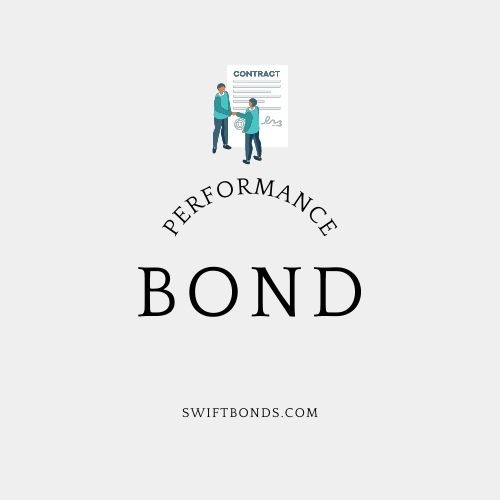You can now apply online for a Performance Bond - it only takes three (3) minutes! (Yep, we timed it.) Click here:
Or you Can download our Express Performance Bond Application (click to download form)
- Complete the form and email to [email protected]
- Be sure to include the Contract and Notice of Award letter (bid specs from the obligee).
- Send the bid results if you have them

Understanding Performance Bonds
A performance bond is a financial guarantee that ensures the terms of a contract will be honored. Essentially, if one party to a contract fails to fulfill their obligations, the bond compensates the other party for any damages or costs incurred. This type of bond is crucial in maintaining trust and accountability in contractual agreements.
The Miller Act mandates that contractors on all federal public works contracts valued at $100,000 or more must secure a performance bond. This bond guarantees that the contractor will complete the project as agreed. Before a project begins, it typically goes through a bidding process. Once the job is awarded to the winning bidder, payment and performance bonds are provided to guarantee the project’s completion.
Performance bonds are particularly common in the construction and real estate development sectors. They serve as a safeguard for project owners, ensuring that contractors adhere to the agreed-upon terms and complete the work on time. By providing this financial security, performance bonds help mitigate the risks associated with large-scale projects.
How does a performance bond work?
A performance bond contract, detailed in the bond form, is issued by one party to contract with the other as a safeguard against their failure, or under-performance in the agreement. This financial instrument can come into play when there is an event that would prevent either of those parties from meeting each obligation in full and on time.
Have you ever had to transfer a Performance Bond?
If you’ve never transferred a bond before, it can be confusing. Swiftbonds is here to help! We have the best customer service team in the industry and we want to make your experience as easy as possible.
What we do is work with you, the Obligee and the Surety to make sure that the contract is revised properly and that the bond will transfer as needed. One thing that is usually done here is that the surety will require that the Obligee sign an “Alls Right” letter so that there is not a claim on the bond for work already performed. Additionally, having a written agreement in place when transferring a performance bond is crucial to avoid any potential disputes and ensure a smooth process.
You don’t need any special knowledge or skills to transfer your bond with us because our team has done this thousands of times! Fill out the form now and get started on transferring your performance bond today! Click this right now if you’re interested in getting started on transferring your performance bonds today!
When can you release a performance bond?
As a rule, performance bonds remain in force until the stated discharge date. This is either after practical completion of the works or making good any defects.
How do you collect on a performance bond?
Find out where the funds from your performance bonds are being held and get them back by initiating a bond claim and requesting either a cashier’s check or wire transfer. See our How to make up a Performance Bond for a Demolition job?
Do you get your performance bond money back?
It’s important to know what happens if you violate your contract. If you do, the surety will step in and pay for expenses related to your failure– without getting their money back from a performance bond that they paid on behalf of an obligee who violated his or her agreement with them. Bond claimants, including those who supply labor and materials, can file claims on payment bonds to ensure they are compensated if the prime contractor fails to pay.
What are the differences between a performance bond and bank guarantee?
A construction performance bond is actually just like a bank guarantee, with surety promises ensuring that the surety will pay claims if the principal fails to fulfill their contractual obligations. The right to claim under both these contracts, however, differs in that bonds require payment on demand while guarantees can only be claimed when non-performance of an underlying contract occurs.
What is a performance bond example?
For example, if a contractor is not able to follow the agreed specifications in a construction project and damages the building instead. The client may be given monetary compensation for the losses incurred by them.
What does a performance bond cover?
A performance bond covers the owner against any potential losses as a result of contractor failure to perform or inability to deliver. It serves to guarantee payment, ensuring that contractors and subcontractors receive payment even if the principal contractor is unable to fulfill their financial obligations. The compensation is defined as the amount covered under such an agreement, and its purpose is protection for project owners who are in need of work completed on time.
Do performance bonds expire? 
costs less than 1% of the contract price. However, there are cases where this might be higher for contractors who have poor credit or if the amount of the contract is under $1 million.
Can you cancel a performance bond?
The obligee has the final say in whether or not a performance bond (a type of monetary security) can be cancelled. Court bonds cannot be canceled by either the principal nor their surety, but only by an order from the court stating that it is no longer needed. Here's How to Obtain a Military Performance Bond?
Is a performance bond a bank guarantee?
A performance bond is a guarantee that an insurance company will complete the contract on behalf of the contractor in case they don't. They are different from bank guarantees because there are three parties involved instead of just two, and it's not provided by banks but rather an independent entity like an insurer or surety provider.
Who are the three parties to a performance bond?
A performance bond and payment bonds are guarantees from someone other than the person or company performing an obligation that they will be paid. The party who guarantees payment can take on this responsibility because these bonds are usually secured by collateral (for example, property). A typical three-party agreement in which there’s a primary business entity called “the principal” and two parties receiving goods/services: the obligee and surety.
Who does a performance bond protect?
It is a surety bond issued by bonding companies and banks to guarantee satisfactory completion of projects. The owner should be protected in case the contractor fails to complete their contractual obligations for whatever reason, like bankruptcy or if they refuse payment after doing good work on schedule. Additionally, subcontractors and material suppliers can seek payment through performance and payment bonds if they have not been paid for supplied labor or materials.
How many percent is the performance bond?
The performance bond is 15%, and covers obligations the contractor has to its workers, subcontractors, and suppliers. Additionally, a warranty bond guarantees compliance with post-construction obligations, ensuring that the contractor addresses any performance issues that arise after the completion of a construction project, such as repairing or replacing faulty equipment. Read this How to locate Performance Bond for Military job?
How long does it take to get a performance bond?
It can take up to 3 days for a performance bond. This means that it will affect the overall turnaround time of your document, so be sure to calculate this extra amount when you are determining how long something will take.
Be sure to check out more at Swiftbonds.com
Learn more about transferring bonds.

